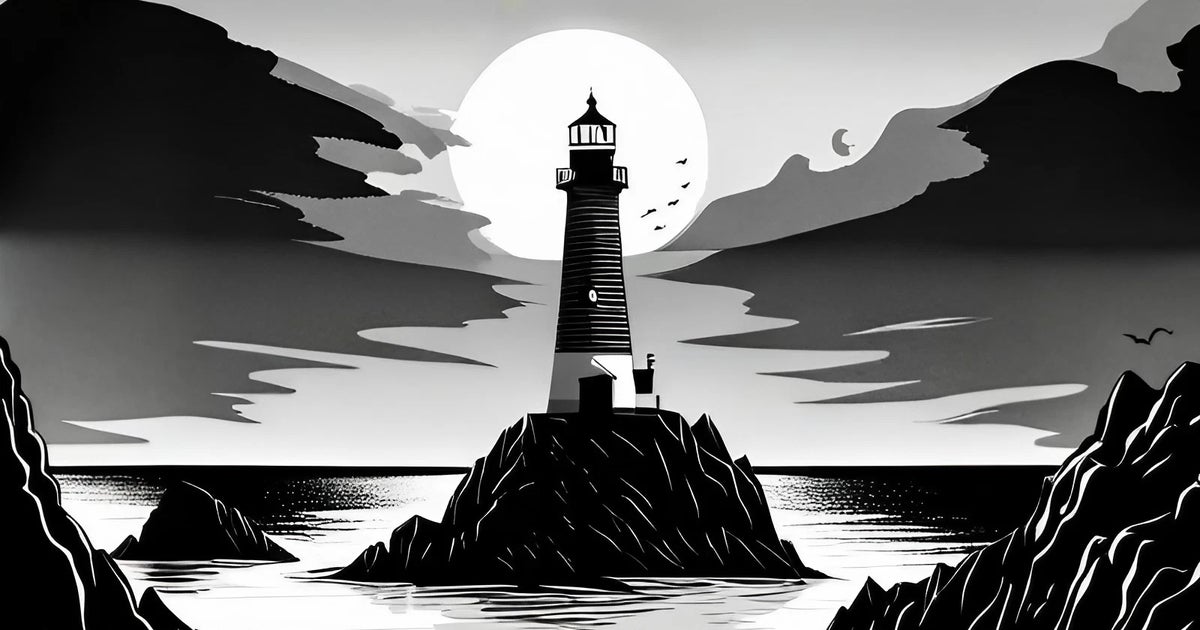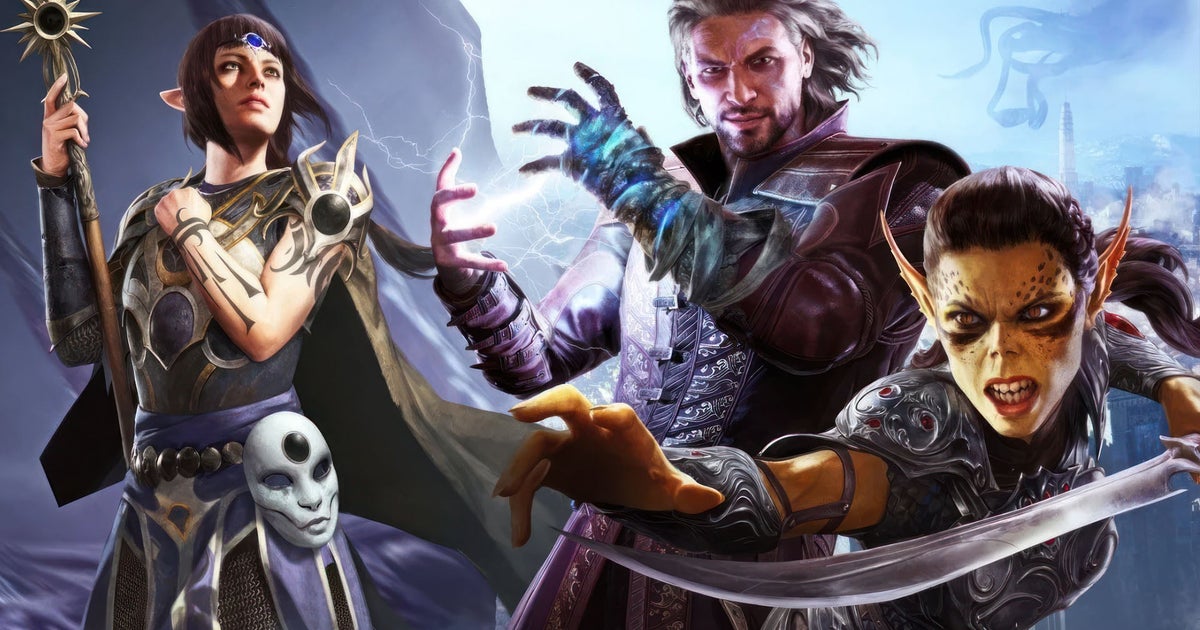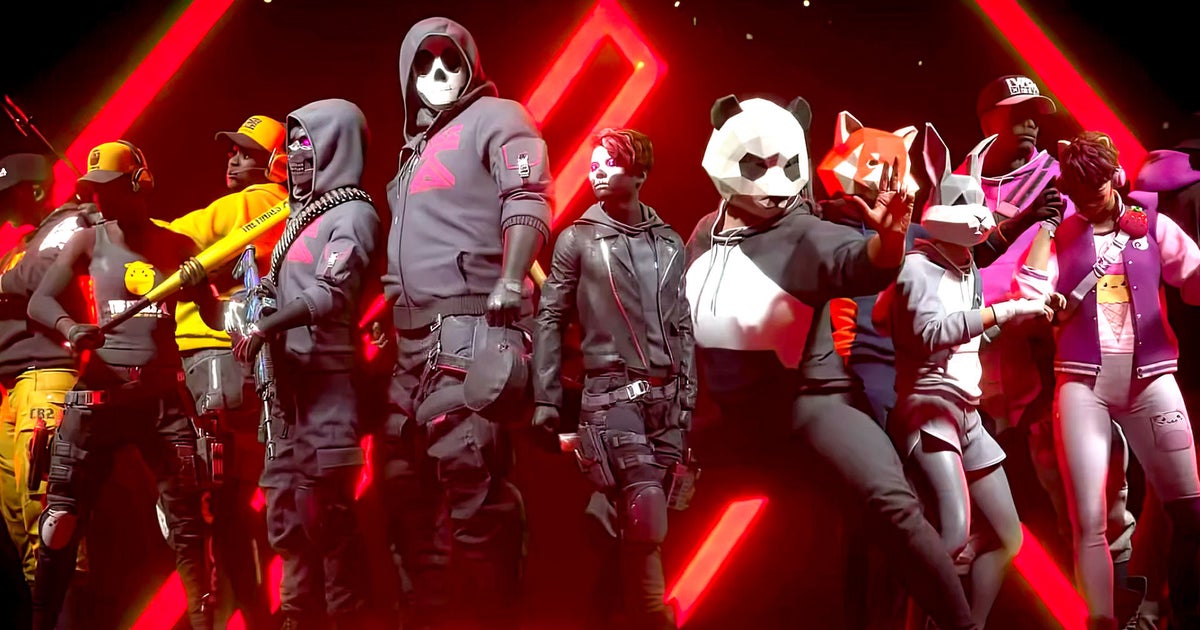[ad_1]
You’ve probably already seen Eurogamer’s top 50 games of 2023, but we didn’t want to leave our end of year thoughts there. Big lists can sometimes feel impersonal, and as you know, tastes in games can be very personal. So we wanted to put together another kind of list, something that would show you – on a more personal level – the games that we, the people who write for Eurogamer, really enjoyed this year.
This brief series of articles will collect the top fives from a handful of different Eurogamer contributors, and we’ll publish a handful of them each day for four days. We’re not ordering the top fives because it’s not really about that this time – ordering things. It’s more important for us, here, to give you a sense of why.
Oh and please feel free – in fact, feel encouraged – to share your top fives below.
Matt
Mediterranea Inferno
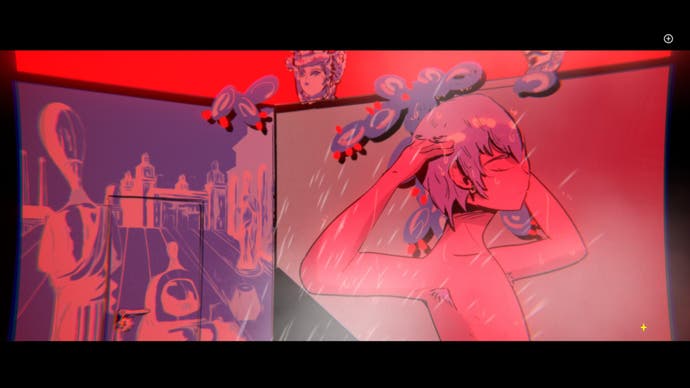
As far as elevator pitches go, solo developer Lorenzo Redaelli’s summation of Mediterranea Inferno – “a sadistic game where you can torture three bourgeois twinks and push them towards the most horrible and gruesome endings” – certainly does the job, but it hardly conveys just how astonishing this vicious, emotionally pulverising, and unabashedly queer visual novel of friendship and post-COVID trauma in the Italian sun really is. At its heart, it’s a morality play – a tale of three violent, inevitable unravelings in the face of emotional, cultural, and political inertia – but one shot through with a devastatingly relatable thread of emotional authenticity, even as it tilts into all-out horror. Mediterranea Inferno is a sledgehammer of a game, a dense, disturbing, provocative, playful, poetic, occasionally profound, and often deeply funny rumination on the sometimes paralysing search for a place in the disenfranchising shadow of modern-day life – and it’s easily the most relentlessly, suffocatingly stylish game of 2023.
Shadow Gambit: The Cursed Crew
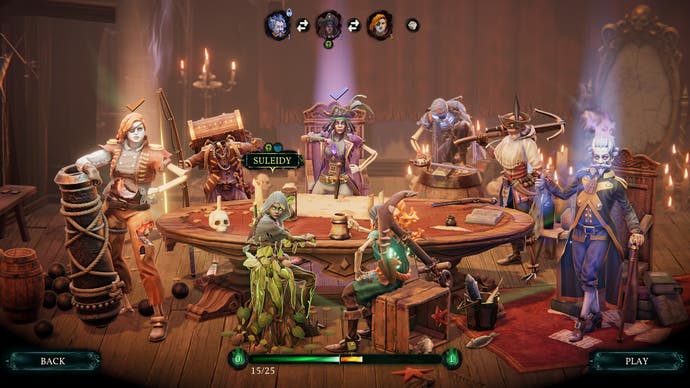
I’ve a confession to make; I’ve regretted not giving Shadow Gambit: The Cursed Crew the full five stars treatment since the day my review went live. This tragically final outing from developer Mimimi Games – a studio that’s built its impressive reputation on its catalogue of remarkable Commandos-style stealth-tactics games – doesn’t, admittedly, shake up the team’s winning formula a whole lot, but it pushes it just about as far as it can go and does so with incredible style. It’s a wonderfully refined, deeply rewarding, and irresistibly characterful pirate adventure (where else can you hide an ally by dragging them off the corporeal plane, or stuff a foe into a portable cannon to launch them out of the way?) that’s just a joy to play. It’s a stellar achievement – as approachable as it is rich in tactical opportunity – from a studio at the top of its game, and it’s just devastating that Mimimi’s journey ends here, albeit on such an enormous high.
Chants of Sennaar
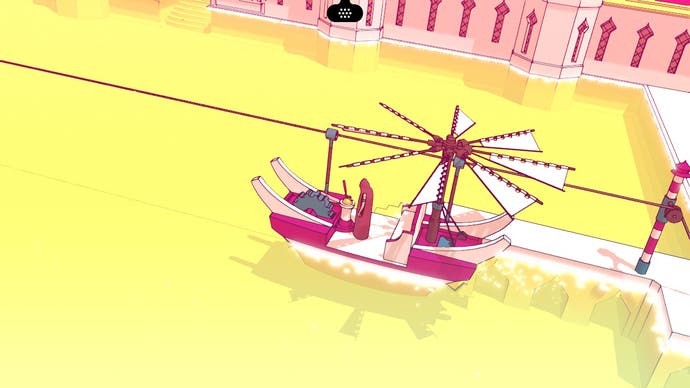
Developer Rundisc’s Chants of Sennaar certainly isn’t the first game to turn linguistic archeology into play, but there’s something wonderful about the purity of its approach here. Shorn of complicated story arcs and character beats, Chants of Sennaar makes language – or rather languages – the absolute star, words folding inward, outward, informing each other, informing the last, in a dazzling, deftly orchestrated series of semantic conundrums requiring players to infer meaning on unfamiliar symbols. That Chants of Sennaar manages to juggle the complexities of its five interlinking languages – each often working within startlingly different parameters – with such casual elegance is an astonishing achievement in itself; that it does so while also wordlessly establishing five fascinatingly distinct cultures and infusing the whole thing with a joyous sense of human connection makes it even more so.
Hi-Fi Rush
Emerging like a blaze of summer sun on a bleak winter’s evening in the depths of January, Tango Gameworks’ Hi-Fi Rush proved to be a wholly unexpected, but entirely fitting, herald to a wonderful year of video game releases – its breezily winning one-two combo of flawless arcade rhythm combat and primary-hued adventuring seemingly escaped from a universe in which the golden age of Sega never died. The beating heart of it all – that rhythmic, mesmerizingly chaotic brawling – is a treat, pairing dazzling, pulsating musical spectacle with timing-based tussling that hides unexpected depths. That alone would make Hi-Fi Rush a worthwhile endeavour, but the boundless charm, wit, and style with which the whole thing is presented turns a canny game into something utterly irresistible.
Cocoon
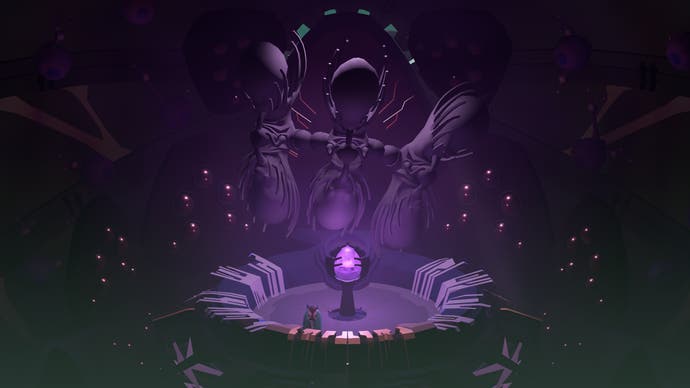
I don’t think I’m quite as taken with Cocoon as some – it’s hard to be emotionally invested in a game this dispassionately aloof – but there’s no denying its often breathtaking ingenuity. Developer Geometric’s puzzler is an obscenely clever thing, the conceptual complexity of its worlds within worlds perpetually threatening to overwhelm players with just too much brain stuff – but one of Cocoon’s most impressive tricks, in a whole bag of impressive tricks, is the way it elegantly, effortlessly guides players to the very brink of bewilderment without ever slipping. The result is that relative rarity – a game that doesn’t just feel clever but makes you feel extremely clever along with it – and, as an added bonus, it’s also perhaps the squelchiest, most disturbingly alien game of the year. Those one-hit boss kills can do one though.
Liv
Smushi Come Home
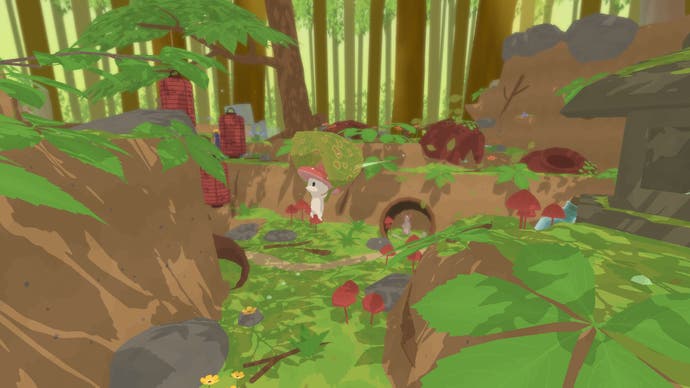
This is a short platform-adventure game which only takes a few hours to complete and really only needed a few minutes to make an impression on me. Although developer SomeHumbleOnion has said A Short Hike and Zelda were among the biggest inspirations for Smushi Come Home, when I first played it I was reminded of the 3D platformers I would play endlessly as a young kid. Spyro: Year of the Dragon and Croc: Legend of the Gobbos were the ones I immediately thought of, mashed up with a really wholesome version of the opening parts of Ocarina of Time. It gave me a feeling of exploration and wonder which I’ve honestly struggled to find in the post-lockdown world.
Terra Nil
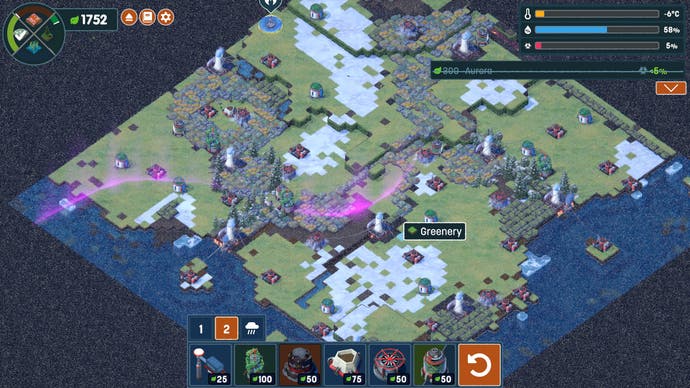
A recent post from Hard Drive sums this one up for me – Fantastical Video Game Lets You Imagine World Where People Come Together to Fight Climate Change. Sadly it’s sort of true. When most of the contributors to climate change are huge corporations who don’t want to address it, it’s easy to feel powerless and it’s nice to think about a world where you can live out your wildest dreams (like tackling climate change). Terra Nil is a great strategy game all round, and I never get sick of seeing colour flooding back into the wastelands.
Super Mario RPG
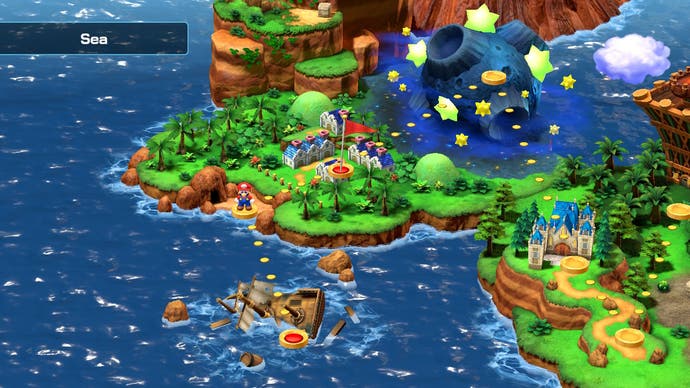
I never played the original, but I have to give props to the remake. When I started playing it, I got nostalgic for my late teens when I was really into Kingdom Hearts. The soundtracks to both were written by Yoko Shimomura and they’ve both obviously different, but somehow the music in Super Mario RPG manages to make me feel the same magical way I feel when I listen to the Kingdom Hearts soundtrack. This game makes me nostalgic for an era of games I never even played, which is an impressive feat, and now I really want to delve into the archive of turn-based RPGs made by Japanese developers in the 90s.
Die in the Dungeon: Origins
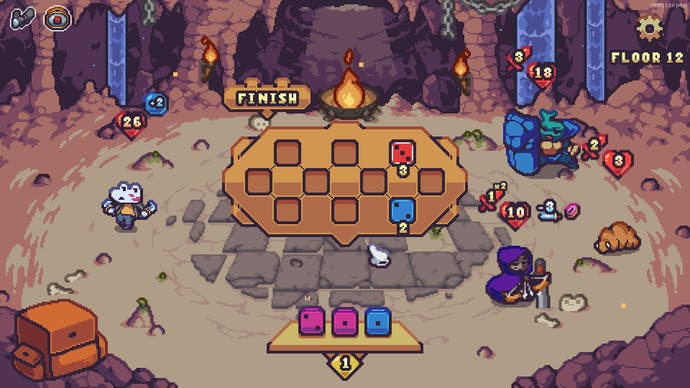
This is quite a recent release, but no other deck-builder roguelike from this year has managed to capture me like this has. Here, your deck is made up of dice which can be used to block, attack, and give yourself buffs. Similarly to Backpack Hero (one of my other favourites in the genre), where you place dice on your combat grid is important and if you build your deck smartly you can get massive bonuses. My brain has quickly gotten to grips with how different types of dice work together, which is why it’s become one of my most-played games in December. (Plus it’s free, and I’ll be keeping an eye out for the main game releases!)
Baldur’s Gate 3

I’d love to try D&D one day in-person with a group of people, but frankly I’d be too scared about having to roleplay consistently and I don’t have enough friends who’d also want to give it a shot. Baldur’s Gate 3 is probably the closest I’ll get to the experience and I’m okay with that. A whole game full of complex and well-written characters, a combat system just asking to be experimented with, and the freedom to save-scum shamelessly is the perfect mix of features I could hope for. I’m hoping over the holiday I’ll be able to get through the campaign finally, and then I can start convincing my friends to play co-op with me… And maybe think about trying Honour mode. If I can survive on the Nautiloid.
Vikki
Sons of the Forest
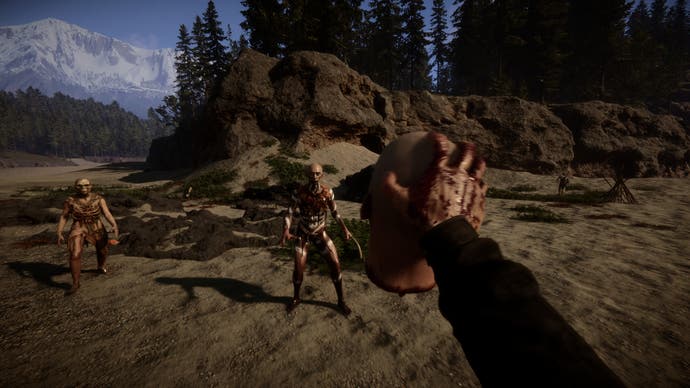
Sons of the Forest is a game I didn’t expect to like, let alone list as one of my favourites of 2023. Even though it’s full of the things I like least in games – crafting and scavenging and surviving and getting lost for the eleventy gazillionth time because I have the directional sense of an empty yoghurt pot – beneath Sons of the Forest’s core survival gameplay lies a deeply compelling mystery, and it’s this that keeps me coming back to hang out with Kelvin again and again.
That said, it deserves a place on this list just for the sublime in-game inventory systems alone.
Dredge
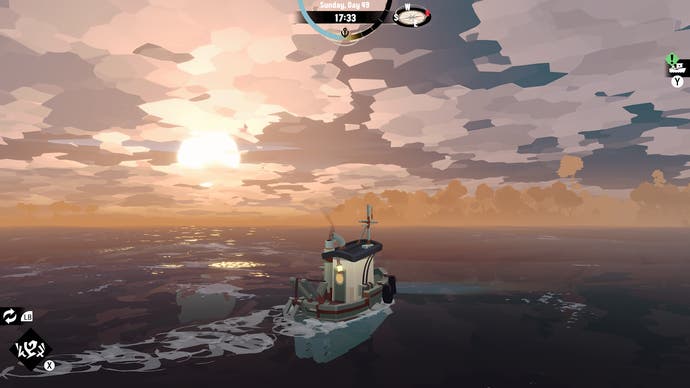
No, I didn’t think a light-touch fishing sim would make it to my list of the best games of 2023, either, yet here we are. It’s been a weird year. No, it’s not particularly spooky – Dredge’s particular brand of horror comes from its Lovecraftian premise rather than the traditional guts and gory type you may expect – and in the day, when the sun twinkles on the water, and the trees waft gently in the breeze, the last thing you’ll feel is terror.
When darkness falls, though, and the soft strings give way to stony silence, few games ramp up the tension as masterfully as Dredge. A dark and thoroughly unexpected delight, it’s unsettling in all the right ways, and I still can’t quell the panic that bubbles up when the sky darkens and there’s no port to be seen…
Dead Space Remake
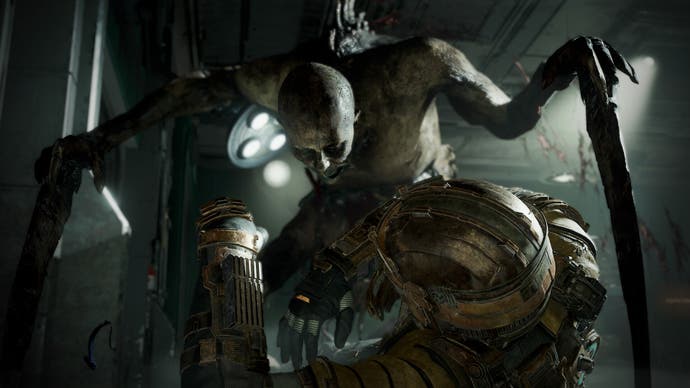
Devoted to the church of Leave Classic Horror Games Alone, I didn’t think I’d play Dead Space Remake let alone fall in love with it all over again. Everything that made Dead Space the genre-defining smash it was – the graphics, the sound, the combat, the blood-curdling screech of Necromorphs in the vents – is fully accounted for and, well, better. It’s a testament to Redwood Shores’ original vision that this game still scares the absolute bejesus out of me, and it’s a testament to Motive’s loving attention to detail that even knowing every twist and secret, I still couldn’t stop playing until the credits rolled. What a ride.
Amnesia: The Bunker
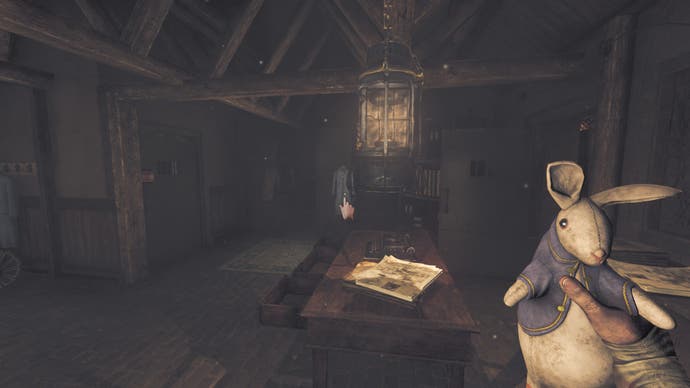
Amnesia: The Bunker isn’t just one of the best horror games I’ve played for years, it’s one of the best games, period. Endlessly thoughtful, inventive, and terrifying, The Bunker isn’t just a magnificent return to form for Frictional, it’s also a triumphant, near-perfect horror yarn that blends sublime gameplay with playful inventory management and a truly sinister storyline that’ll keep you gripped right until the end.
Yes, you will find it harder to leave the safety of the generator. No, you won’t ever become desensitised to the darkness, the thumping in the walls, or the rats (dear God, the rats!). Every bullet fired comes with a cost, just as surely as every step takes you deeper into the unknown. Here’s hoping you make it back unscathed, soldier.
Alan Wake 2
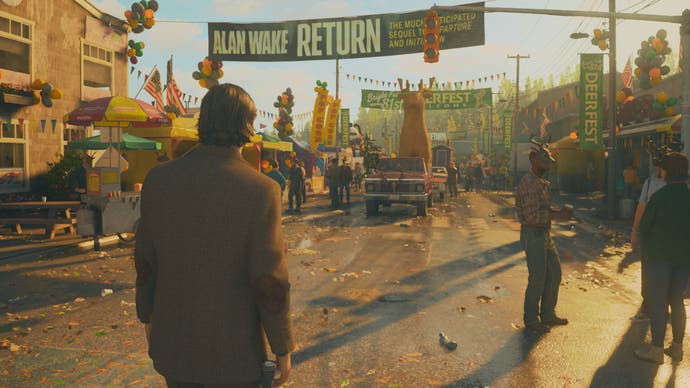
The best games for me are the ones you think about when you’re not playing them, and with Alan Wake 2, I not only thought about it but I dreamt about it too. Boasting Remedy’s most satisfying gunplay since Max Payne, and one of the most bewildering – and surprising – storylines I’ve encountered for some time, there’s a reason we’ll all still be talking about Alan Wake 2 in the months and years to come. It’s a classic.
Vivek
Baldur’s Gate 3
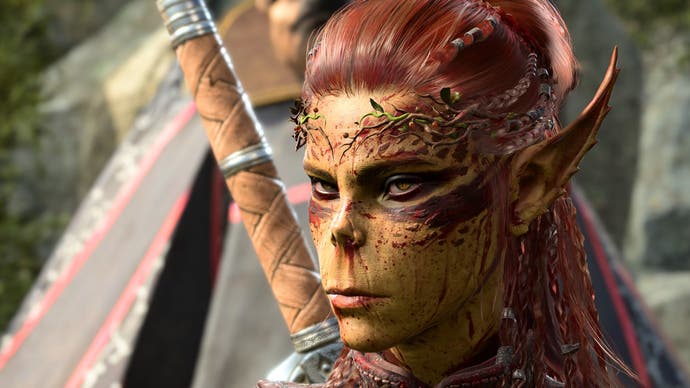
Baldur’s Gate 3 is an epic triumph for Larian Studios and the gaming industry. Player choice is not a mere buzzword but the stone-cold truth. The universe is expansive, weaving in intricate world-building, character histories and arcana whilst keeping character focused. Cthulhu-faced Mindflayers stole the show from the initial creepy tadpole implantation cinematic. The player choice is unbelievable – it permeates right down to the character, narrative, combat, conversation choice and immersion level. The combat has as much depth as the Mines of Moria. The elemental interactions are fun, either allowing me to revel in my intelligence after stealthing past a horde of Goblins or making me question my intelligence after annihilating my squad with a fire attack whilst obviously standing on a greased surface.
Marvel’s Spider-Man 2
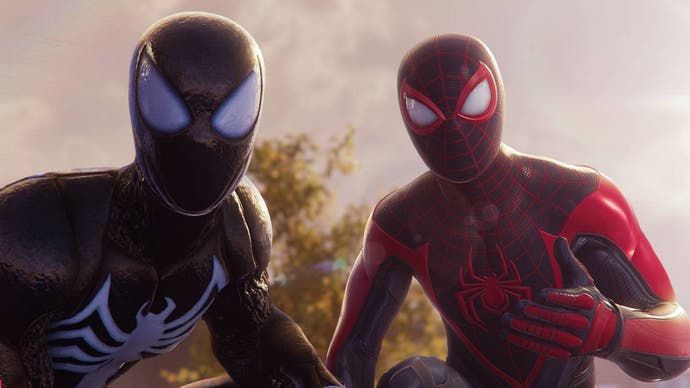
Marvel’s Spider-Man 2 perfected traversal mechanics, web swinging is buttery smooth and the web-wings enhanced my immersion through seamlessly switching between different perspectives with a tap of a button. Spreading my web-wings allowed me a sense of freedom, especially during certain oppressive or restricted moments in the narrative. The instant fast travel truly illustrated the wonderful power of the PS5. The narrative was fantastic – another emotional journey for the whole cast. The Venom origin remix was inspired, the battle with I-can’t-say was gut-wrenching, and the ending was brutal. Miles Morales is my favourite Spider-Man and I welcomed watching him grow into a world-class superhero, allowing Peter Parker’s narrative to take a unique turn I don’t want to give away here, just in case. Also, wielding Venom’s power was an unexpected pleasure.
Cyberpunk 2077: Phantom Liberty
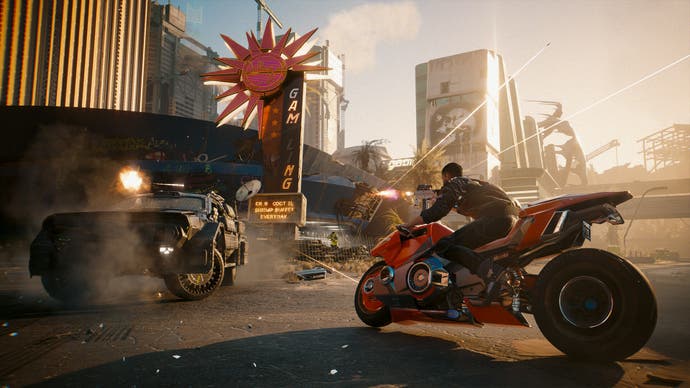
Cyberpunk 2077 has had a tough journey from disaster to redemption after both the 2.0 update and the Phantom Liberty expansion. My V was born in the streets of Night City, thriving to escape the life of crime and achieve the impossible dream of succeeding on her own. The vanilla game has one of my favourite narratives, with a deep existential core whilst challenging the oppressive nature of capitalist society. Phantom Liberty expanded on this to explore the spy genre and governmental conspiracies, whilst taking a closer look at the implications of AI. The highlight is the skill upgrades, mixing classes with a unique flavour by including addictive abilities such as bullet deflection. I spent hours killing Maelstrom gonks with their own bullets after queuing up a few nasty hacks.
Star Wars Jedi: Survivor
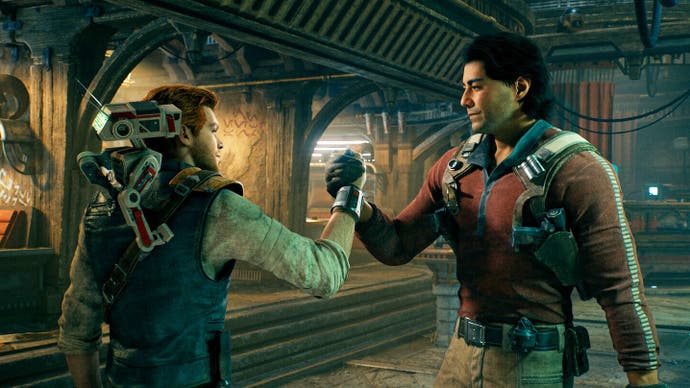
Surprisingly, I enjoyed Star Wars Jedi: Survivor, even though I was extremely critical of the previous game. However, the combat was greatly improved thanks to the correct implementation of lightsaber combat, tying weapon styles with different lightsaber forms. I’m a blaster-wielding dual-sabering Jedi – Han Solo mixed with Ahsoka Tano. The narrative expertly weaved in a showcase of the power of Darth Vader through the devastating extinction of Cere Junda. I’m usually able to guess narrative twists but I was surprised here. The future of Cal Kestis is unclear – will he either fall into the dark side or rise into the light side?
Saltsea Chronicles

This year I played Saltsea Chronicles and it gave me a pure sense of freedom exploring a world full of secrets with wonderful new communities to meet. It’s personally significant for me too because it was the first game where my name was mentioned in the credits. It was a pleasure to discuss accessibility practices with Die Gute Fabrik and guide them to make Saltsea Chronicles the most barrier-free experience possible.
Bertie
Baldur’s Gate 3
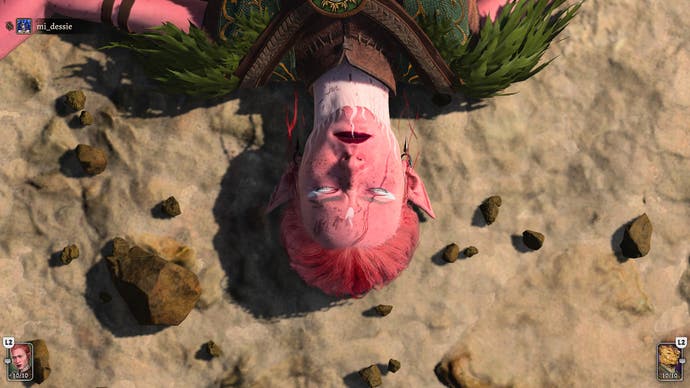
One game has dominated the year for me, one way or another, and it’s Baldur’s Gate 3. I found myself at one of Larian’s studios in Dublin over the summer, somewhat unexpectedly, and I find it fascinating now to think of that as a before-moment – a quiet moment before the game was released and became the year-shaping colossus it has been. Not since The Witcher 3 can I remember a game having this kind effect on RPGs and the wider gaming community. Maybe this is even bigger – I don’t know. It’s been a cultural touchstone. What makes its success even better, I think – beyond that it’s all backed up by a wonderfully layered experience – is the place it comes from. Larian made this because it wanted to make it. Heart came first and then the head. Really, on paper, it was a hard sell. And yet it worked. The game, the production, the effect – it’s been a poster-game for the industry this year. And it’ll be really interesting to see how Larian handles the pressure of what comes next.
Dungeons & Dragons
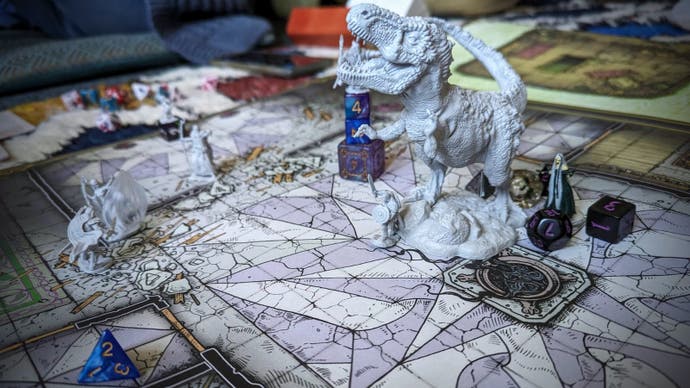
Not the kind of game you perhaps expected to see here, but it’s been so integral to my experience of gaming this year – and to the game that dominated my year (above) – that I can’t leave it out. I embarked on two new campaigns this year in D&D, with two new groups, and I resurrected an old one. It’s been busy. I think I’ve probably spent more time playing and thinking about D&D than anything else. As a result, I know a lot more about it. I’m beginning to appreciate its design as well as critique it. This also means I’m very excited about 2024 and the new edition of D&D that’s coming. It’s going to be a big 50th anniversary year.
Diablo 4
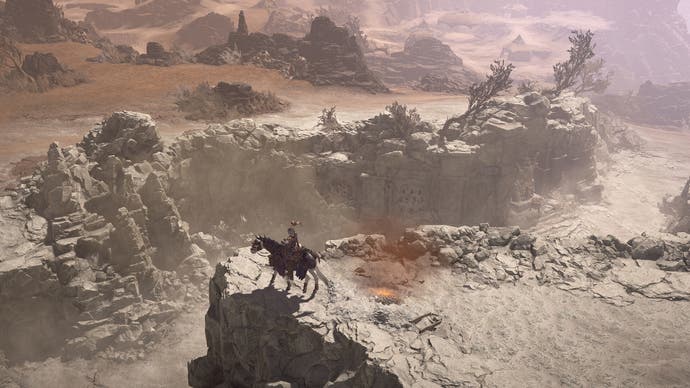
This is another game I’d been looking forward to for a long time. It’s almost strange to think that it’s out there now, just there, in the wild, living. But also, slightly forgotten about? I don’t think it quite lived up to my expectations – it feels a bit thin once you’ve been playing it for a while – but there’s an awful lot I still do like about it, and I find myself thinking about it fondly, about how I’d quite like to go back sometime. I often equate it to being a cookie clicker of a game that’s quite nice to just switch off to, as you plough through hordes of enemies like squelchy exploding, um, cookies? It’s very nice to look at too. See: I am full of poetic thoughts.
Wildfrost
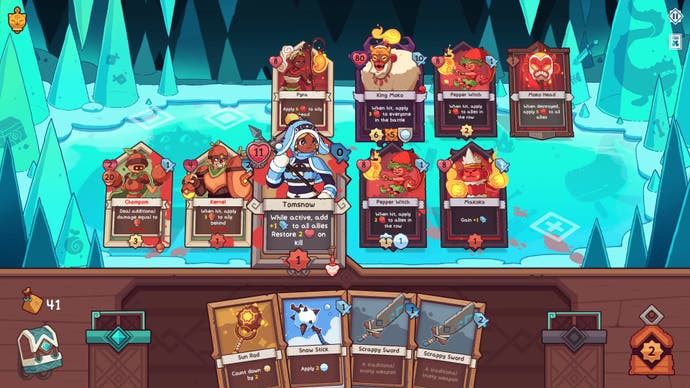
Wildfrost got a bit overlooked earlier this year in the rush of other things, but it’s a Roguelike card game in the Slay the Spire genre. And standing out in that genre is a hard thing to do, which is why I want to mention Wildfrost – because it did. Wildfrost came to the genre with big ideas like positioning and lines of characters (it’s a bit like Monster Train if you’ve played that) and it landed them. More than that, it made them its own. But what really delighted me was the consistently deep and challenging mind that the game has – the way it flummoxes you, or presents sets of enemies that represent a collective puzzle you have to unpick. Oh and: it’s very nice to look at too.
Terra Nil
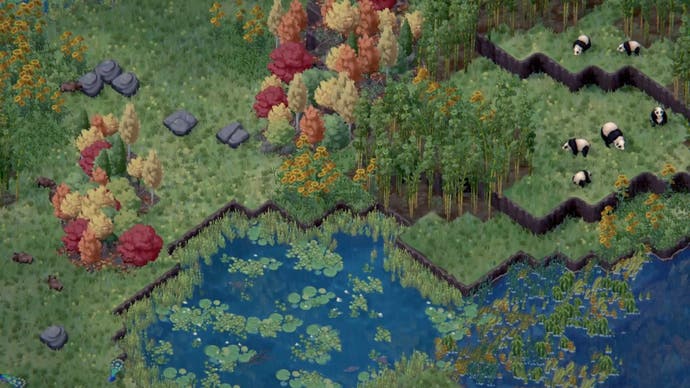
I want to shout out Terra Nil for being one of those games that, despite the busiest of years, I can’t forget. I suspect it’s because it’s so tied up in the climate disaster we’re facing, and we are necessarily reminded of, that it keeps returning to my mind. Wouldn’t it all be so easy if life was like Terra Nil and we could simply deploy some cool tech to reverse the effect we’ve had on planet Earth? We can’t, unfortunately, but Terra Nil provides some hope in a worrying time. It’s very nice to look at too.
[ad_2]
Source link

